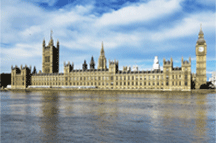The Lobbying Bill returned to parliament on Tuesday 21 January to be debated at Third Reading in the House of Lords, where Peers discussed Part 2 of the Bill. Third Reading offers a last chance to table amendments to the Bill. Both technicalities and amendments to improve accuracy and clarity of the scope were considered.
Similar to previous debates, the Bill was criticised by various Peers, including Baroness Mallalieu (Lab) who described the Bill as “a piece of legislation which is a stab in the dark to try to deal with a theoretical loophole.”
As Lady Mallalieu explained, the constituency limits introduced in the Bill reduce the spending limit to £9,750 in the year of an election, but “do not do that for candidates or political parties but only for non-party campaigners”. The aim of the Bill is to reduce the perception of undue influence. Yet, “[t]here is no evidence that non-party campaigners are currently exploiting the existing law by focusing their spending on a particular constituency. Indeed, no data are presently available on third-party spending by constituencies.”
“Therefore,” according to Lady Mallalieu, “the loophole is going to remain wide open because after the Bill is passed there will be no restriction on either candidates or political parties. […] What is to stop a campaign registering as a political party, putting up a couple of candidates and spending the whole of its national limit in one constituency? The answer in the Bill is: nothing.”
Lord Harries of Pentregarth (CB) pointed at the Electoral Commission’s views that the Bill’s constituency spending limits are “unworkable and unforceable”. According to the Commission, “it will be challenging to obtain robust evidence to determine and sanction breaches in specific geographical areas, for example, regarding the effects of a leafleting campaign or mobile advertising in different constituencies”.
Therefore, Lord Harries of Pentregarth proposed to add more activities to the realm of controlled expenditure. This includes “unsolicited telephone calls … made to … electors or households … which can reasonably be regarded as intended to ascertain or influence their voting intention” as well as “election material … which is addressed to electors whether addressed to them by name or intended for delivery to households” as proposed by Lord Tyler (Lib Dem) or “otherwise distributed within any particular constituency or constituencies” as added by Lord Harries of Pentregarth. Lord Harries of Pentregarth’s amendment was carried by 248 to 222.
The Lobbying Bill will return to parliament on Wednesday 22 January.














